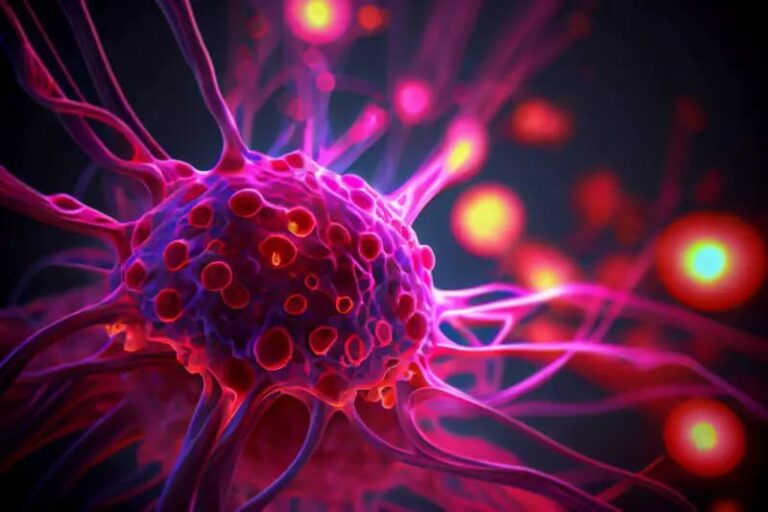The onset of dementia and dementia-related diseases has increased in recent years due to an aging population. Worldwide, dementia is the seventh leading cause of death, with an estimated 55 million showing symptoms and 10 million new cases each year. [1]
In the United States, the number of people thought to have Alzheimer’s or dementia-related diseases are close to 6 million people, and by 2060 that figure is estimated to rise to 14 million. [2]
According to the Mayo Clinic, dementia describes a group of symptoms affecting memory, thinking, and social abilities severely enough to interfere with daily life. Of the many types of dementia, Alzheimer’s is the most common form and may contribute to 50-75% of cases. [1, 4]
Types of Dementia
There are many types and causes of dementia. However, four common forms make up the majority of cases.
- Alzheimer’s disease: The most common type of dementia and accounts for up to 75% of all diagnosed cases. [4]
- Vascular dementia: The second most common type of dementia, caused by damage to the vessels that supply blood to the brain. [3]
- Dementia with Lewy bodies (DLB): Similar to Alzheimer’s, this type of dementia happens when abnormal proteins form in brain cells, causing nerve cell death. Persons with DLB make up 10-15% of all cases of dementia. [5]
- Fronto-temporal dementia: A rare type of dementia affecting the frontal lobe of the brain that can alter mood, behavior, and movement. [6]
In some cases, people may suffer from more than one form of dementia. When this occurs, it is known as mixed dementia.

What Causes Dementia?
Several risk factors can lead to the onset of dementia, with symptoms varying from person to person.
- Age
- Poor diet or vitamin deficiency
- Lack of exercise or physical inactivity
- Excessive alcohol intake
- Smoking
- Obesity or poor weight management
- High blood pressure
- Depression
- Air pollution
- Hereditary genes
- Severe or prolonged head injury or trauma
- Down’s Syndrome
- Parkinson’s disease
Improving your diet can help minimize the risk of developing dementia. Sign up for a free copy of our Superfood Cookbook by Dr. Partha Nandi and add nutrients and minerals to every mealtime.
Symptoms of Dementia
While symptoms can vary depending on the type of dementia a person is suffering from, here are common signs to look for that may indicate dementia onset:
- Memory loss. The ability to retain information such as a name or phone number
- Lack of concentration or losing the ability to perform simple, everyday tasks
- Communication issues. Unable to remember terms or phrases or use words that do not fit into the context of the conversation
- Being confused. Forgetting the day of the week or getting lost in a familiar place are common early symptoms of dementia
- Poor judgment. Misjudging distance or making questionable health and safety decisions
- Personality changes. Over-anxiousness, confusion, or showing signs of depression
Many of the above symptoms are related to the onset of dementia. They can also be confused with lifestyle or treatable conditions such as alcohol consumption, anxiety, stress, head injury, kidney or liver problems, or side effects of medication.
Latest Research on the Protective Role of Antioxidants
As dementia rates rise globally along with aging populations, researchers are increasingly looking at diet, exercise, and lifestyle changes to delay, slow, or even reverse the effects of dementia onset.
While age-related dementia or family history cannot be altered or changed, improving health and remaining mentally, physically, and socially active can help reduce risks. Scientists have also discovered that foods containing certain antioxidants are vital in the fight against dementia prevention.
A recent study found that people with high levels of three antioxidants in their blood have a lower chance of developing dementia. The study analyzed blood samples from more than 7,000 people aged 45 years old. Each participant was physically examined and interviewed at the beginning of the study.
A follow-up was carried out after several years, and participants’ blood levels were analyzed for three types of antioxidants — lutein, zeaxanthin, and beta-cryptoxanthin.
Results showed that an increase of 15.4 micromoles per liter of lutein and zeaxanthin levels was associated with a 7% reduction in the risk of dementia. Meanwhile, an increase of 8.6 micromoles per liter of beta-cryptoxanthin reduced the likelihood of dementia by up to 14%. [7]
Antioxidant-Rich Foods to Include in Your Diet for Dementia Prevention
Lutein, zeaxanthin, and beta-cryptoxanthin are three potent antioxidants found in many vegetables, leafy greens, and some fruits. Antioxidants help protect the brain from oxidative stress, which can damage cells.
Here are foods and spices that contain the highest levels of these valuable antioxidants:
Lutein and Zeaxanthin
- Kale
- Turmeric
- Spinach
- Romaine lettuce
- Corn
- Bell peppers
- Parsley
- Pistachios
- Eggs
- Summer squash
- Broccoli
Beta-Cryptoxanthin
- Oranges
- Avocado
- Papaya
- Mango
- Peach
- Watermelon
- Pumpkin
- Red capsicum
Foods to Avoid
Certain processed foods rich in carbohydrates may also increase your risk of developing dementia and other diseases. [8]
Try to reduce or limit your intake of the following:
- White bread
- White rice
- Pastries
- Sodas
- Snacks with added sugars
- Pasta
- Sweets
- Breakfast cereals
Further studies confirm that regular consumption of processed meat products such as sausages, salami, and bacon could increase the onset of dementia and Alzheimer’s by almost 50%. [9]

Eat Your Way to a Healthier Life
Research suggests that diabetes, obesity, and heart disease can increase dementia. Incorporating a diet rich in antioxidants can decrease the risk of developing certain health conditions and slow or reduce the chance of progressive dementia. Using the best of what nature offers can lead to a healthier life.
One such diet recommended by many experts is the MIND diet (Mediterranean Intervention for Neurodegenerative Delay) which encourages a balanced healthy eating plan of fresh fruit, vegetables, leafy greens, fish, poultry, and whole grains. [10]
By signing up for our free Superfood Cookbook, you can add many of the recommended food sources from the MIND diet, along with 50 delicious recipes for you and your family to enjoy.
You can then complement your diet with supplements rich in antioxidants and other essential vitamins and minerals that you can find online at the Health Hero Pharmacy.

Sources
- Dementia – World Health Organization
- Dementia vs. normal aging | CDC
- Dementia – Symptoms and causes – Mayo Clinic
- Alzheimer’s disease | Alzheimer’s Disease International (ADI)
- Dementia with Lewy bodies | Alzheimer’s Disease International (ADI)
- Fronto-temporal dementia | Alzheimer’s Disease International (ADI)
- Association of Serum Antioxidant Vitamins and Carotenoids With Incident Alzheimer Disease and All-Cause Dementia Among US Adults | Neurology
- Refined carbohydrate‐rich diet is associated with long‐term risk of dementia and Alzheimer’s disease in apolipoprotein E ε4 allele carriers
- Meat consumption and risk of incident dementia: cohort study of 493,888 UK Biobank participants | The American Journal of Clinical Nutrition | Oxford Academic
- MIND diet slows cognitive decline with aging – Morris – 2015 – Alzheimer’s & Dementia – Wiley Online Library











 Subscribe to Ask Dr. Nandi YouTube Channel
Subscribe to Ask Dr. Nandi YouTube Channel









